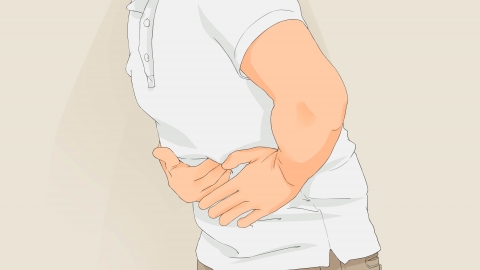What are the causes of cardia erosion?
In general,贲门糜烂 (gastric cardia erosion) may be caused by factors such as irritation from unhealthy eating habits, weakened function of the lower esophageal sphincter, Helicobacter pylori infection, gastroesophageal reflux disease (GERD), and gastric cardia mucosal laceration syndrome. It is recommended to seek timely medical attention, identify the underlying cause, and undergo symptomatic treatment under a physician's guidance. Detailed analysis is as follows:

1. Irritation from unhealthy dietary habits: Long-term consumption of excessively hot, spicy, or coarse foods, or heavy alcohol consumption and coffee drinking can continuously irritate the gastric cardia mucosa, leading to mucosal damage and erosion. Symptoms may include mild burning pain during meals, which improves when the stomach is empty. Immediately adjust your diet by avoiding hot and irritating foods, quit smoking and drinking alcohol, choose cool, soft foods, reduce ongoing damage to the gastric cardia mucosa, and promote mucosal healing.
2. Weakened function of the lower esophageal sphincter: In elderly individuals or those with long-standing unhealthy lifestyle habits, relaxation of the lower esophageal sphincter may occur, resulting in reduced closure function. This allows gastric contents to reflux into the gastric cardia, repeatedly irritating the mucosa and causing erosion. Symptoms may include acid regurgitation and heartburn, which are more pronounced when lying flat. Avoid lying down immediately after eating, refrain from eating for at least 2 hours before bedtime, and elevate the head of the bed by 15–20 degrees while sleeping to reduce reflux. Additionally, practice diaphragmatic breathing exercises to strengthen sphincter function.
3. Helicobacter pylori infection: Helicobacter pylori colonizes the gastric cardia and gastric mucosa, releasing toxins that damage the mucosa, causing inflammation and erosion. Symptoms may include dull upper abdominal pain and belching. Failure to treat promptly may lead to recurrent erosion. Patients should follow medical advice and undergo quadruple therapy to eradicate the infection, such as using amoxicillin capsules, clarithromycin tablets, omeprazole enteric-coated capsules, and colloidal bismuth potassium citrate capsules together to completely eliminate the bacteria and promote healing of the gastric cardia mucosa.
4. Gastroesophageal reflux disease (GERD): Patients with GERD experience frequent reflux of gastric contents, continuously eroding the gastric cardia mucosa, leading to mucosal congestion and erosion. Symptoms may include retrosternal pain and difficulty swallowing, which worsen after consuming fatty foods. Patients should strictly control body weight, avoid wearing tight clothing that compresses the abdomen, and follow medical advice to use medications such as rabeprazole sodium enteric-coated tablets, hydrotalcite chewable tablets, and domperidone tablets to suppress gastric acid secretion, neutralize gastric acid, and promote gastric emptying, thereby reducing irritation to the gastric cardia.
5. Gastric cardia mucosal laceration syndrome: During severe vomiting or retching, the gastric cardia mucosa may be forcefully stretched and torn, resulting in erosion or even bleeding. Symptoms may include hematemesis and severe upper abdominal pain, often preceded by heavy alcohol consumption or intense vomiting. Immediately stop eating, and follow medical instructions to use medications such as esomeprazole enteric-coated capsules, thrombin lyophilized powder, and Yunnan Baiyao capsules to stop bleeding and protect the mucosa. In cases of severe laceration with persistent bleeding, endoscopic suture of the gastric cardia mucosa may be required to suture the laceration site, stop bleeding, and promote healing.
In daily life, develop regular eating habits, chew food thoroughly, avoid overeating, and reduce the burden on the gastric cardia. Maintain emotional stability to prevent excessive gastric acid secretion caused by tension and anxiety. Regularly undergo gastroscopy to monitor the condition of the gastric cardia mucosa, promptly address any abnormalities, and prevent worsening of the erosion.





